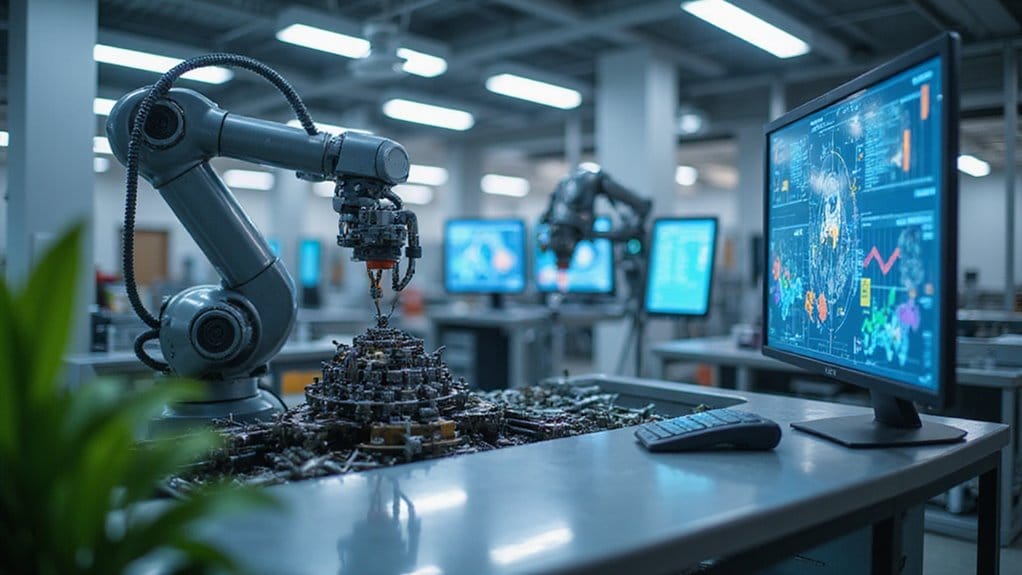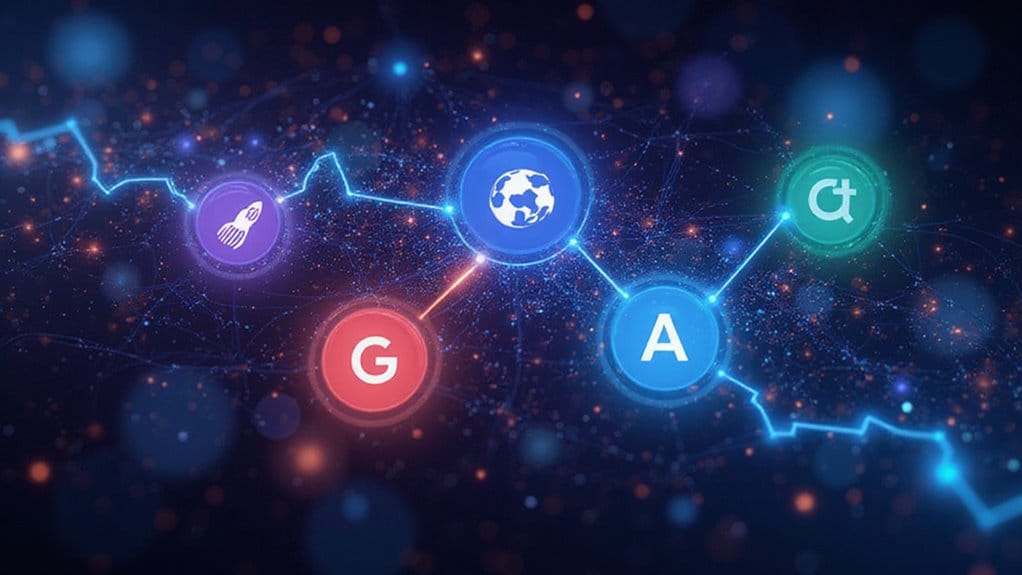AI search engines are shaking things up in the information game. Say goodbye to outdated methods and hello to fast, relevant results! These engines understand what you really mean thanks to clever algorithms and natural language processing. No more keyword stuffing for SEO; it’s all about user intent and quality content now. But beware—algorithmic bias and data privacy still lurk. Want to stay ahead of the curve? Stick around for more essential insights!

In a world where time is money—yes, even your precious scrolling time—AI search engines are stepping up to the plate, swinging for the fences. These digital marvels leverage AI advancements to deliver search results that are not just fast but also relevant and accurate. Gone are the days of sifting through pages of irrelevant links; now, you can expect search algorithms that understand what you really want. Sounds dreamy, right?
AI search engines are revolutionizing the way we find information, delivering fast, relevant results that truly understand user intent.
So, what’s the secret sauce? It’s all about natural language processing (NLP) and machine learning (ML). These technologies allow search engines to get cozy with human language, interpreting the nuances and intent behind your queries. Imagine typing “best pizza near me” and not just getting a list of pizzerias but the best-rated ones based on your past preferences. That’s the power of AI!
But wait, there’s more! AI search engines analyze massive amounts of data faster than you can say “I need a coffee.” This means they can provide accurate results with personalized flair. Think about it: you’re not just a random user; you have unique tastes, and AI recognizes that, tailoring results just for you. With AI-powered search technology, users benefit from a search experience that evolves over time as it learns from extensive data analysis. This evolution aligns with the shift towards understanding user intent rather than just relying on keyword matching.
What’s the result? A better user experience that keeps you engaged and coming back for more.
However, don’t get too comfortable. The rise of AI search engines also means that businesses need to adapt their SEO strategies. It’s no longer just about throwing in keywords and hoping for the best. Companies must understand user intent and create structured content that meets AI’s new expectations.
But here’s the kicker: as we embrace this AI revolution, we need to stay vigilant. There are challenges, like algorithmic bias and data privacy issues, lurking in the shadows.
Frequently Asked Questions
How Do AI Search Engines Differ From Traditional Search Engines?
AI search engines revolutionize online searching by using advanced search algorithms and sophisticated data processing techniques.
Unlike traditional engines that simply match keywords, AI understands context and intent, making searches feel more like conversations.
Imagine this: instead of typing “best pizza,” you might ask, “Where can I find the tastiest pizza nearby?”
Boom! Personalized results appear.
Embrace this change—it’s more than just a trend; it’s the future of search, and you’ll want to keep up!
Can AI Search Engines Understand Natural Language Queries?
Yes, AI search engines can indeed understand natural language queries!
Thanks to natural language processing, they grasp the nuances of your questions—synonyms, context, and intent. Forget the days of typing awkward phrases; now you can speak naturally!
These engines decipher complex queries, making searches feel like a chat with a savvy friend. So, next time you ask a question, expect relevant results faster than you can say “search engine.”
Try it and be amazed!
Are AI Search Engines Better at Providing Personalized Results?
AI search engines excel at providing personalized results, thanks to their advanced personalized algorithms that analyze user preferences.
They don’t just regurgitate keywords; they understand intent. Imagine searching for “best pizza” and getting tailored recommendations based on your past cravings. Scary, right?
But this is the future! So, if you’re not adapting your content strategy, you might as well be shouting into the void.
Get ahead, or get left behind!
What Industries Benefit Most From AI Search Engines?
Industries like healthcare and e-commerce are reaping big rewards from AI search engines.
In healthcare analytics, quick access to essential medical info saves lives—seriously, it’s that important!
Meanwhile, e-commerce optimization means shoppers get personalized recommendations that might actually delight them.
Keep up or get left behind; these sectors are transforming.
If your industry isn’t on board, it’s time to rethink—unless you enjoy being obsolete.
Don’t say you weren’t warned!
Will AI Search Engines Replace Human Jobs in Search-Related Fields?
Will AI search engines replace human jobs in search-related fields?
Well, hold onto your keyboards! Job displacement is a real concern; these engines are improving fast. That means skill adaptation is essential. You can’t just sit there!
Learn new tools, embrace change, and upskill to stay relevant. Sure, AI can handle some tasks, but humans bring creativity and critical thinking.
Don’t panic—prepare! Your future in search might depend on it.








